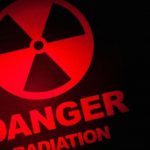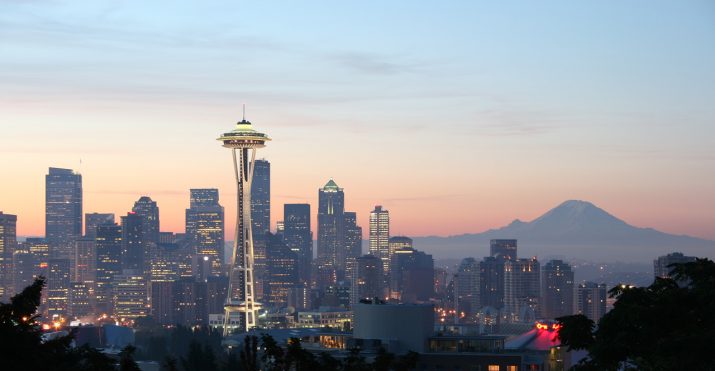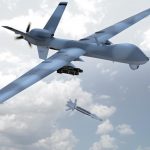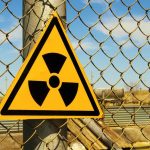
If you want to escape a possible nuclear attack, better not move to Washington state
Wednesday, May 17, 2017 by JD Heyes
http://www.nuclear.news/2017-05-17-if-you-want-to-escape-a-possible-nuclear-attack-attack-better-not-move-to-washington-state.html

As American military and intelligence officials noted in April that North Korea was appeared to be making preparations to conduct its sixth nuclear weapons test, many began assessing how close Pyongyang was to building an ICBM capable of hitting the continental United States.
Information about the Hermit Kingdom’s weapons programs remain hard to come by, but based on recent missile tests experts concluded that if North Korea had a ballistic missile capable of reaching American territory, it might only be able to fly as far as Hawaii.
Or Seattle.
As noted by Q13 Fox on April 26, former CIA Director Gen. Michael Hayden, in addition to other experts and analysts, predicted that Pyongyang could likely strike Seattle with a nuclear weapon.
That assessment was refuted by Richard Ellings, president of the National Bureau of Asian Research, and others, who said they did not think that North Korea yet possesses the capability. But they acknowledged nonetheless that Seattle presents what would be a lucrative target – militarily, especially.
“We are the ultimate target to hold hostage, from a North Korean perspective,” Ellings said. “We have JBLM (Joint Base Lewis-McChord, whose mission is to provide immediate logistical and combat support) whose primary purpose is to reinforce the Korean Peninsula in case hostilities break out. We have Boeing, we have the trident missile base, intercontinental ballistic missiles on trident submarines. We have the shining city on the hill. We are the ultimate target to hold hostage from the North Korean perspective.” (RELATED: Nuclear War Or Civil War: The Big Cities Will Become Cauldrons Of Violence And Death – But You CAN Survive)
So, since North Korea either has or will soon have the capacity to strike one of the most populous, militarily significant American cities along the West coast, Seattle is preparing for the worst – with preparations like storing food, providing fallout shelters, stockpiling provisions and other things, right?
Wrong.
Why? Because it’s against the law in Washington state to prepare for a nuclear explosion.
No, we’re not making this up. As Fox News reports, loony liberal lawmakers in the mid-1980s passed legislation forbidding evacuation and prepper planning for nuclear attacks. Washington cities can prepare for every other emergency, just not that one. The thinking was, ‘If we prepare for a nuclear detonation, then someone will target us for nuclear detonation.’
“You are really sending a message that you’re getting ready to do something maybe yourself,” said one of the state representatives who helped pass the law, Democrat Dick Nelson, now retired.
The law was passed as adopting the opposite approach being taken by President Ronald Reagan at the time, who was in the middle of a dramatic U.S. military buildup as part of his “peace through strength” approach to national security. Reagan’s idea was that you become far too powerful for a potential enemy to mess with. And he, ultimately, proved correct: The Soviet Union exhausted itself financially trying to keep up with U.S. military strength, which it could never match.
And besides, even back then Washington state was a lucrative target for the Soviets (and Chinese, for that matter, though China was far less powerful at the time). Fort Lewis and McChord Air Force Base – the two installations that were combined in 2010 – have been in place since the early 1900s. The state has also long served as a submarine base for our nuclear-armed boomers.
So to claim that if you don’t “prepare for a nuclear war,” you won’t invite a nuclear attack is just absurd. And as Ellings noted, it remains absurd to continue thinking that way. (RELATED: If Nuclear War Breaks Out, Which U.S. Cities Would Be Targeted First?)
No one wants to have to try to live through a nuclear detonation (though it certainly can be done). But so often in life reality gets in the way and we must face and do things we normally wouldn’t.
Thankfully, today, not all Washington state lawmakers see things the same way as their predecessors, so we could maybe see the law changed soon.
“I think it’s ridiculous and silly,” state Sen. Mark Miloscia said. “And sort of head-in-the-sand mentality. If it has a probability of happening, prepare for it.”
J.D. Heyes is a senior writer for NaturalNews.com and NewsTarget.com, as well as editor of The National Sentinel.
Sources:
Tagged Under: Tags: ICBM, North Korea, nuclear explosion, preparations, Washington state





